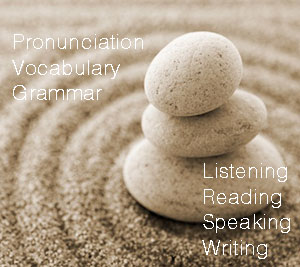Some of my students struggle to get at least 7 in IELTS Speaking, which is not a piece of cake. One common stumbling block is lexical resource. If we have a look at IELTS Speaking band descriptors, we will see that for Band 7 a person needs to “use some
Read more →Some time ago I started thinking how to help my students train IELTS Speaking. Most of them manage to practice twice or three times a week with me, but that is not enough for them to prepare well. Even if they do practice alone, they can’t control the time well
Read more →IELTS examiners try to identify “less common lexical items” both in your speaking and writing. An important parameter is also your “awareness of collocation and style”, that is how you combine words. For instance, you need to write “quick meal“, but “fast food“. Or, you can say “do the cooking“,
Read more →When I studied linguistics at University, we had a great deal of lessons on English grammar. I remember a boring thick textbook with lots of rules we had to memorise and then retell our professor. The chapter on articles: “a, an and the” was extremely hard to understand: it had
Read more →You can take advantage of IELTS vocabulary materials: fillers, connectors for letters, essays, Academic graphs and tables. Having learned different cohesive devices and using them, you will improve your IELTS result. The best way to learn IELTS cohesive devices would be to use these collocations and phrases during your speaking
Read more →It’s really important to read much information in English in order to develop your reading skills, vocabulary and general knowledge. You can add the following reading resources to your bookmarks and enjoy daily reading while you are having your morning coffee or tea. My rating of useful reading resources: №1
Read more → Русский
Русский English
English



